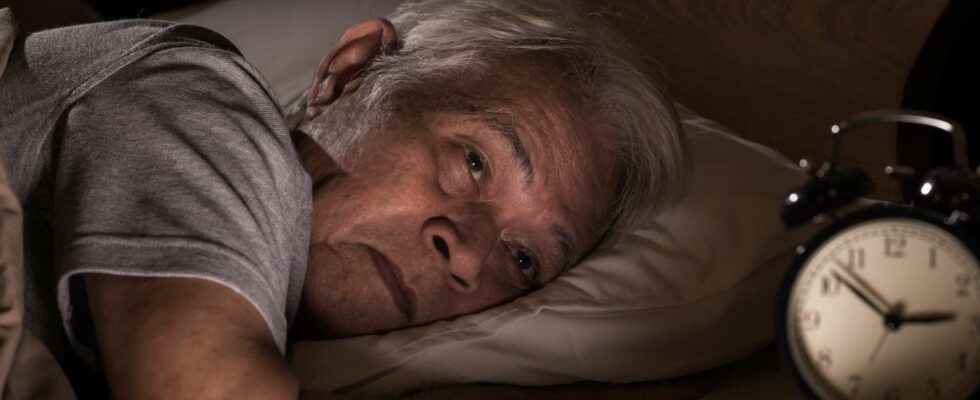As we get older, we often sleep less and less well. Sleeping pills sometimes work, but not always. We recover less quickly. But why ? The answer could well be in our brain, at the level of the orexinergic neurons. Indeed, the quality and quantity of this type of neurons, involved in the waking state, change with age. Explanations.
From the age of 60-65, many individuals complain of having a bad sleep. alarm clocks nocturnal are frequent. These fragmented nights do not allow sufficient rest and significantly affect the quality of daytime life of these people. In effect, bad sleep is associated with increased risks ofhypertensionofcardiac arrestof diabetes or nervous breakdown. Although this phenomenon has been widely observed and known for a long time, the underlying mechanisms are still not elucidated. A team took an interest in the question and has just published an article in the prestigious newspaper Science.
Wakefulness neurotransmitters
The authors of this study looked at hypocretins, also called orexins. Only some neurons from braina very small part of the neurons located in thehypothalamus lateral and dorsomedial as well as in the perifornical area, are able to produce these neurotransmitters. Those peptides are involved in appetite and wakefulness: they are excitatory. They initiate and maintain wakefulness. Previous work has shown that patients with low levels of hypocretins have high needs for sleep and could suffer from narcolepsy.
A mouse model
Sleep is also disrupted with age in mice, making them a good model for studying sleep in the elderly. Two groups were formed: a group of so-called young mice aged 3 to 5 months and a group of so-called old mice aged 18 to 22 months. The older mice did have sleep problems, with frequent nocturnal awakenings. The authors observed that the quantity of neurons capable of producing hypocretins was less in old mice compared to young mice, by 38%. This result may seem paradoxical at first sight, since hypocretins are excitatory and maintain wakefulness. But the remaining neurons showed hyperexcitability compared to the neurons of a young mouse: that is to say, a very weak stimulus was enough for them to produce hypocretins, which trigger wakefulness.
Better understanding why we sleep poorly when we age could help develop more personalized treatments, more adapted to this specific sleep disorder. The sleeping tablets currently available often cause a state of drowsiness upon waking, increasing the risk of falling. Thanks to this work, a new generation of sleeping pills could be developed for the elderly suffering from nocturnal awakenings.
Interested in what you just read?
